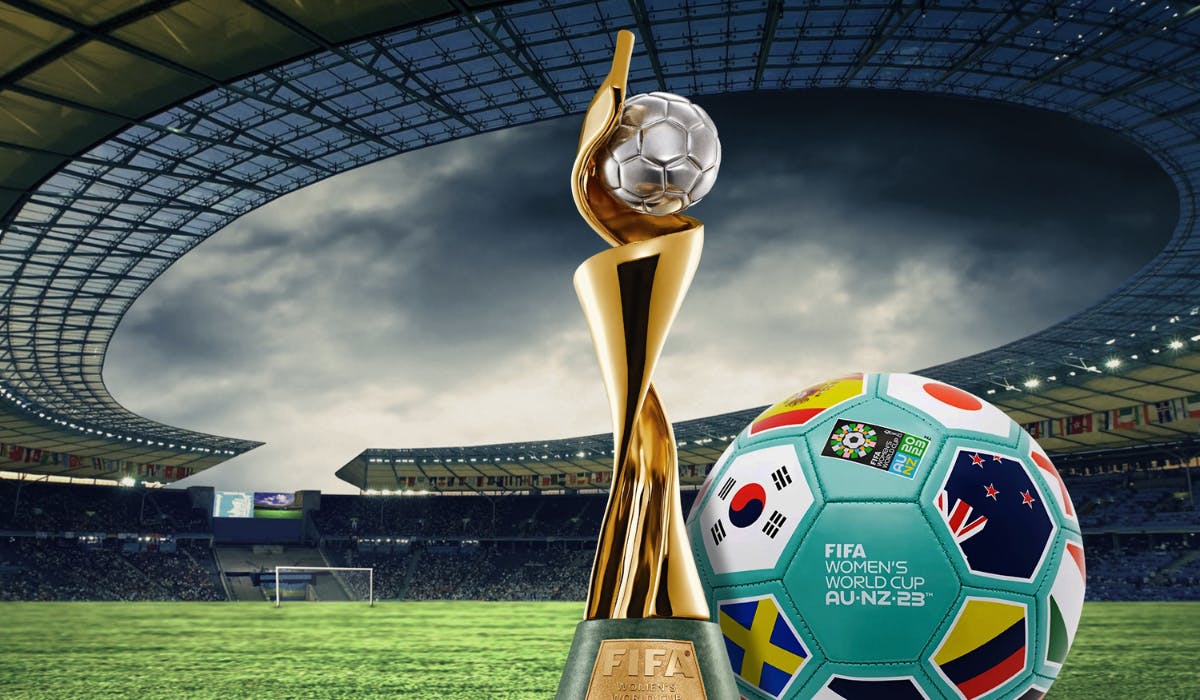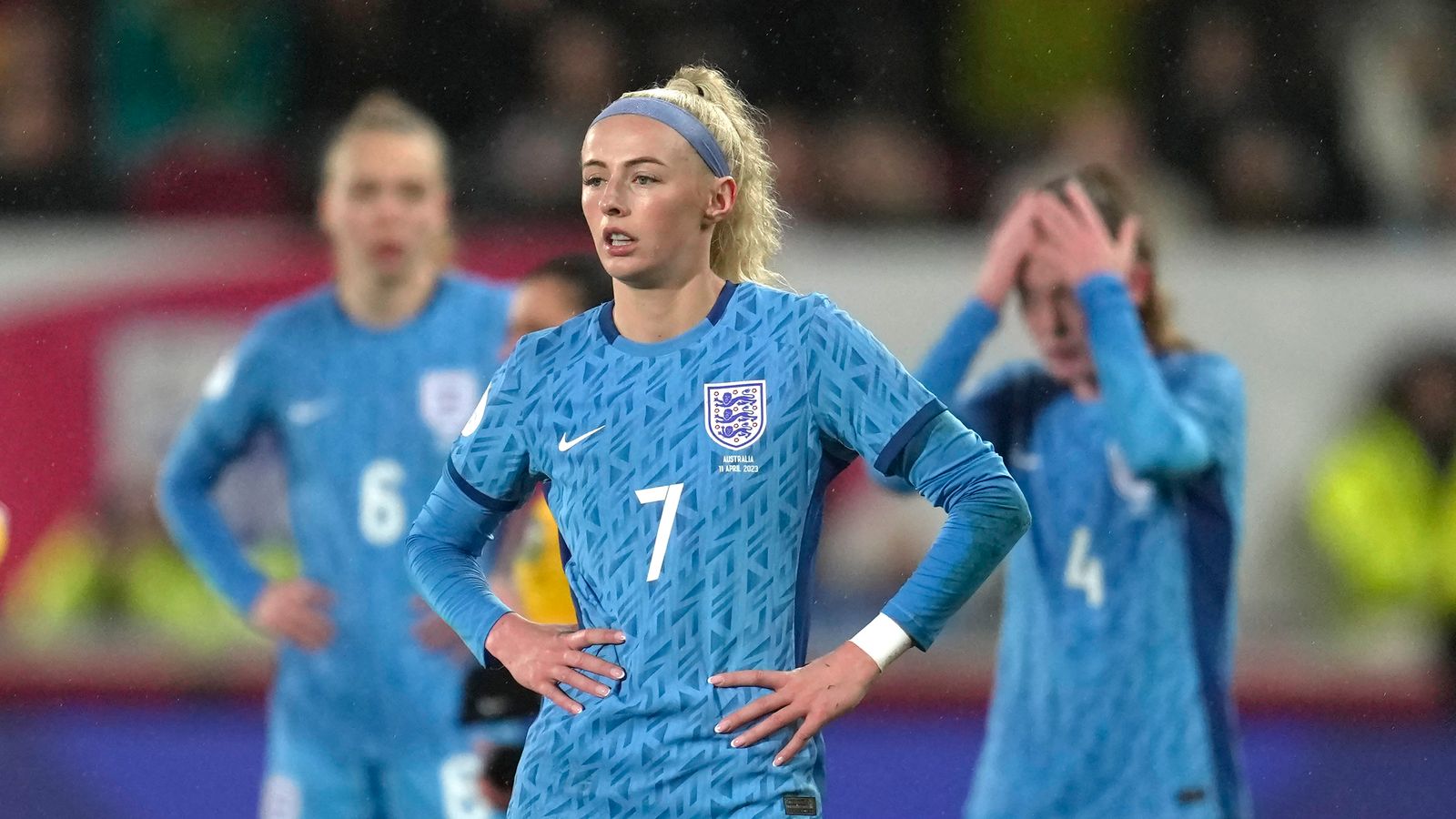
The Unforgettable World Cup Finale: A Game-Changer for Brands

Brands celebrate a 'marquee moment' as England's Lionesses reach the 2023 World Cup final Discover how they left their mark and explore what lies ahead to propel the game forward
The Women's World Cup final on Sunday (20 August) resulted in England's unfortunate 1-0 loss to Spain, leaving English football fans with a sense of heartbreak. Nonetheless, the tournament created a profound buzz and excitement, illustrating the remarkable progress women's football has made since the last tournament in 2019. This progress extends beyond the Lionesses' journey and showcases the growth of the sport as a whole.
The tournament is a significant event that occurs every four years, aimed at elevating women's sport, as Laura Weston, trustee of the Women's Sport Trust, explains. It goes beyond just visibility and attracting audiences; it showcases the potential of women's professional sport and the influence it can wield.
The World Cup final garnered enormous attention, with a peak audience of 14.8 million viewers tuning in across the BBC and ITV. However, as Weston suggests, the expansion of the game is not solely dependent on viewership numbers.
"People were properly analyzing what was happening," she comments on the increased engagement with the tournament this year.
Although there is still progress to be made in terms of sponsorship and brand involvement within the game, Weston acknowledges that this year's tournament marks the first time she observed people actively discussing the creativity of the brand content.
Orange's viral ad, 'Les Bleues', generated considerable discussion as it showcased highlights from the male French national team for almost a minute, only to reveal through CGI that the players were actually from the women's team. This advertisement aimed to challenge stereotypes and change perceptions of female footballers, receiving a mixed reaction. However, according to Weston, there has been a noticeable dearth of impactful brand activations during the World Cup, making it difficult to identify five outstanding examples.
According to System1, last week's report showed that the Women's World Cup had better ad appeal than the men's tournament. This means that ads such as ITV's 'The Pride has Arrived' and Adidas's 'Play Until They Can't Look Away' performed better overall than the average ads for the men's tournament. Jon Evans, the chief customer officer at System1, explains that advertisers for the women's tournament are using famous athletes, celebrities, melodic music, humor, and distinctive assets to capture consumers' attention and drive long-term market share growth.
How brands marked the final
Brands adopted diverse strategies to commemorate the final, such as Burger King's transformation into 'Burger Queen' and Breast Cancer Now's introduction of a print campaign named 'A Bigger Win' aimed at motivating individuals to examine their breasts.
Sports Direct launched the 'Wake Up to the Future of Football' campaign throughout the tournament, aiming to promote the female game as the future of the sport. Beckie Stanion, the chief marketing officer at Frasers Group, explains that while the male game is already popular, true football fans should also show support for both the men's and women's teams. She further emphasizes that Sports Direct is not passively observing from the sidelines but actively working to make a significant impact by providing a platform for the women's game.
Source: Breast Cancer Now
In order to make more progress, Sports Direct is launching its ‘Equal View’ initiative this week, which seeks to enhance the presence of female football supporters.
When searching online for 'football fans', the results predominantly display men or a limited representation of women in football. We aimed to address this imbalance and promote a more inclusive and aspirational future for our customers, understanding that visibility is crucial for empowerment.
In terms of engagement, over the past two weeks, 17.4 million devices actively participated in the World Cup, as observed by Quantcast's engagement tracking. Additionally, there was a noteworthy 200% surge in interest for England's leading scorer, Lauren Hemp, during this period, along with a 50% increase in curiosity regarding the Spanish team.
What’s next?
Weston wonders if England won the final, whether the country would’ve deemed women’s football to be “completed”.
The impact of the Lionesses winning the game is unknown, but Weston believes that there is significant room for improvement in how brands and agencies portray the sport and women's sports in general. She expresses her belief that those responsible for creating assets lack a proper understanding, stating that a strong insight is lacking. She further explains that successful creative work begins with a compelling insight, but people's limited understanding of women's football leads them to rely on stereotypes and choose the most obvious approach.
According to her, the focal point is "empowerment". Instead of emphasizing the sport and the passion that accompanies it, she notes that brands predominantly share stories of players who have "surmounted obstacles" to reach their current position.
If individuals lack an understanding of women's football and its perceived image, they typically rely on stereotypes and opt for the most apparent option.
According to Laura Weston from the Women's Sport Trust, the crucial aspect to take away from the tournament is the positioning of women's football. She emphasizes the need to determine who the fans are, the visual representation of the sport, and the standards of high-quality creativity.
The Women's Sport Trust has conducted thorough research on the desires of fans regarding brands and the sport. They assert that fans wish to see the skills of players and how they attain their level of excellence, according to Weston. Currently, brands have not fully grasped the sporting and performance aspects of women's football. Weston believes that is what women's football fans crave to witness.
The next major tournament, the Euros, is scheduled to take place in two years. Weston emphasizes the importance of clubs and leagues supporting the women's game. She highlights Arsenal and Chelsea as examples of clubs that are actively supporting women's football. Chelsea has made a significant move by appointing the first-ever commercial director solely dedicated to the women's team. Weston believes this is a significant milestone and emphasizes the need for more professionals solely focused on women's football.















